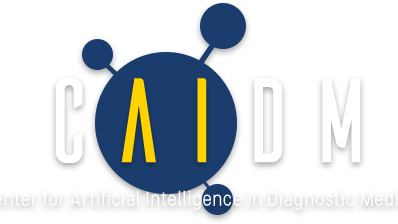Research
The Center for Applied Artificial Intelligence Research (A2IR) seeks to integrate the expertise of healthcare professionals, software engineers, data scientists, and other research professionals to develop novel tools for: (1) detection, (2) characterization, and (3) prognostication for a variety of conditions in an effort to improve patient care and clinical workflow. Our Center seeks to accomplish these goals through the development of deep learning, a subset of machine learning, artificial intelligence platforms.
Projects
This collection of projects represents our current work in the application of artificial intelligence to medical imaging. The objective of these projects is to enhance diagnostic accuracy and contribute to the efficiency of clinical workflows through technological solutions.
Kidney
Efficient and Accurate Computed Tomography Based Stone Volume Determination: Development of an Automated Artificial Intelligence Algorithm
Given the shortcomings of current stone burden characterization (maximum diameter or ellipsoid formulas), we sought to investigate the diagnostic accuracy and precision of a University of California, Irvine–developed artificial intelligence (AI) algorithm for determining stone volume determination.
Knee
Meniscus tear detection on knee magnetic resonance images with U-net model
Meniscus tears are a common cause of knee pain, often leading to decreased function and early osteoarthritis. Magnetic resonance imaging (MRI) is the gold standard for diagnosing meniscal tears, but accurate interpretation is time-consuming and requires expertise. This study aimed to evaluate the performance of a 3D/2D deeply supervised U-net model for detecting and localizing meniscal tears in knee MRI scans.
Abdomen
International Multi-Institutional Validation Study of Novel Deep Machine Learning Artificial Intelligence Model to Predict Risk of Peritoneal Carcinomatosis in Gastric Cancer
Historically, peritoneal carcinomatosis (PC), a serious complication that’s often difficult to detect with standard imaging, affects a significant number of GC cases. The cutting-edge tool developed uses a convolutional neural network (CNN) to analyze pre-treatment computed tomography (CT) scans in combination with key clinical data. The goal of this multi-institutional study is to create a robust and reliable AI model that can accurately assess the risk of PC, ultimately helping doctors make more informed treatment decisions. By pooling data from a diverse, international cohort, the team aimed to ensure the model performs well across different patient populations and healthcare settings.
To learn more about other projects, please contact us at A2IR-info@hs.uci.edu.




